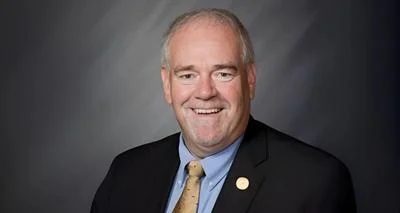Senator Todd Young, US Senator for Indiana | Official U.S. Senate headshot
Senator Todd Young, US Senator for Indiana | Official U.S. Senate headshot
U.S. Senator Todd Young has supported the National Defense Authorization Act (NDAA), which will guide policy for the Department of Defense and set national security priorities. The Senate passed the legislation with an 85-14 vote.
"The National Defense Authorization Act is one of the most important pieces of legislation that Congress considers each year," stated Senator Young. He expressed satisfaction that the bill includes several key priorities he has championed, such as countering the Chinese Communist Party, maintaining U.S. leadership in emerging biotechnology, modernizing defense capabilities, and supporting Indiana's defense industry.
Senator Young played a role in securing several provisions within the NDAA:
The bill includes Emerging Biotechnology provisions, drawing from Young's position as chair of the National Security Commission on Emerging Biotechnology. It requires the Department of Defense to develop a roadmap for leveraging biotechnology and creates an AIxBio sandbox to explore its application in national security. The legislation also addresses potential biotech threats and examines China's use of such technologies.
The Applicant Medical Reimbursement Act allows for reimbursement of up to $100 for military applicants' co-pays when visiting civilian medical providers during recruitment processes.
Funding for Multi-Service Advanced Capability Hypersonics Test Bed (MACH-TB) supports Naval Surface Warfare Center-Crane Division in Indiana. This funding aims to advance hypersonic weapons systems development and solidify Crane's role as a center for hypersonics.
Anti-Submarine Warfare Equipment funding was secured by Senator Young to enhance Navy capabilities against submarine threats from China and Russia, including an additional $25 million authorization for sonobuoy stocks.
AI maritime maneuvering funding will support Trine University and NSWC Crane's work on AI-enabled maritime navigation. This initiative will boost STEM education in Indiana and aid workforce training in advanced manufacturing.
Lastly, Senator Young obtained up to $500 million for Regional Technology and Innovation Hubs (Tech Hubs) from spectrum auction proceeds. This follows his introduction of the Tech Hub concept in 2020, later incorporated into law through the CHIPS and Science Act.






 Alerts Sign-up
Alerts Sign-up